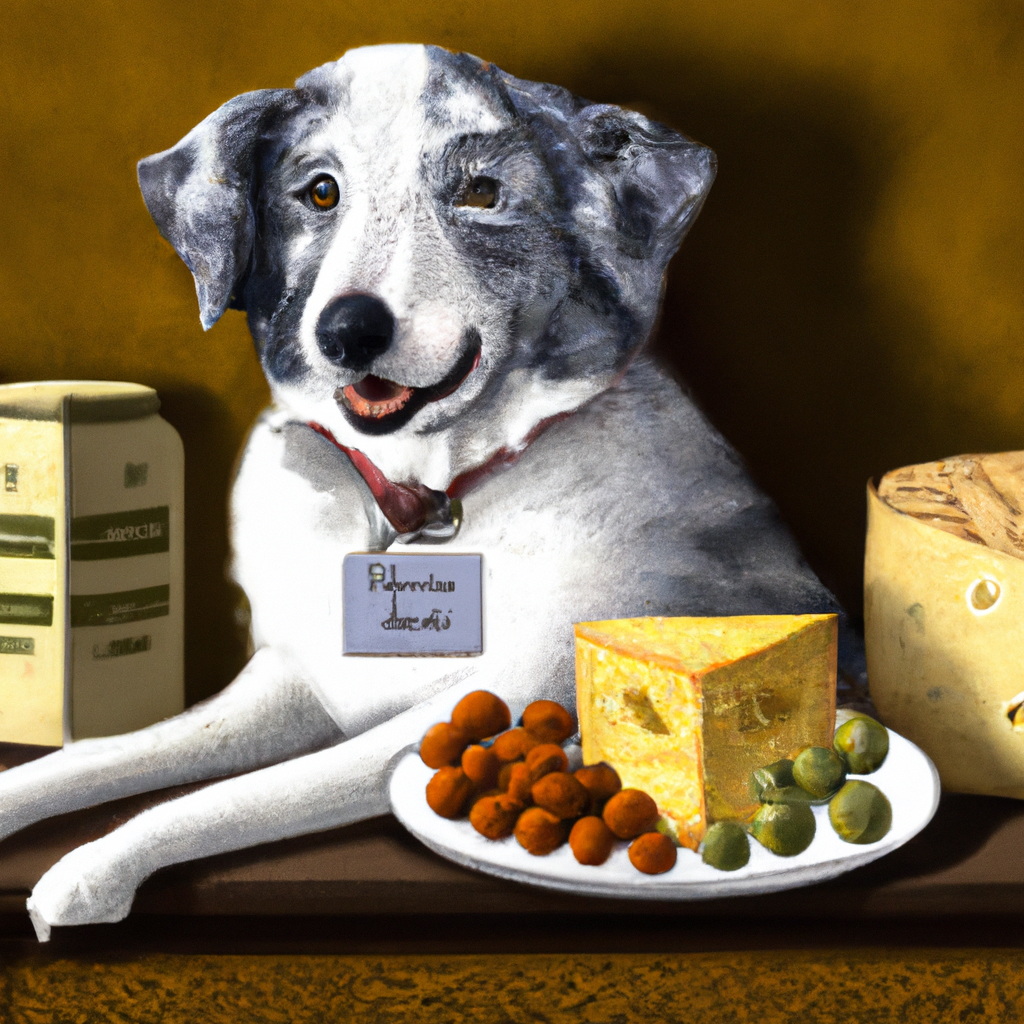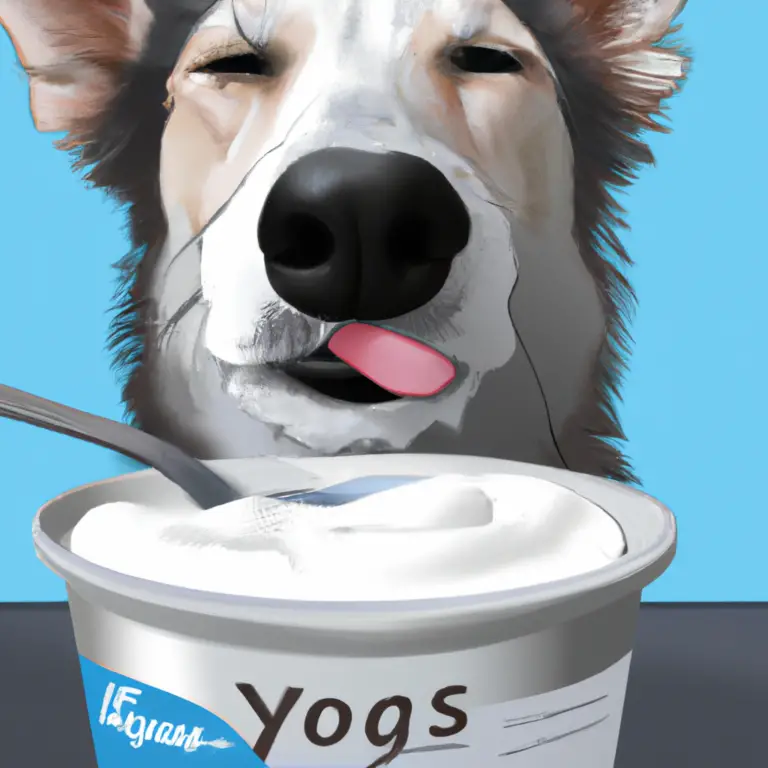Can Dogs Eat Cheese Uk
Did you know that cheese is a popular treat for dogs in the UK? We’ve all been there, wondering if it’s safe to share our favorite cheesy snack with our furry friends. Well, look no further! In this article, we’ll delve into the health benefits of cheese for dogs and explore the potential risks. We’ll also provide a comprehensive guide on the types of cheese that are safe for your pooch to enjoy. So sit back and relax as we uncover everything you need to know about dogs eating cheese in the UK.
Key Takeaways
- Cheese is a good source of protein, calcium, and vitamins A and B12 for dogs.
- Dogs should be fed cheese in moderation to avoid weight gain and digestive issues.
- Many dogs are lactose intolerant and may experience digestive upset if given cheese.
- Certain types of cheese, such as blue or Roquefort, are not safe for dogs and may contain toxic ingredients.
Health Benefits of Cheese for Dogs
You’ll be happy to know that cheese can actually provide several health benefits for your furry friend. While it is important to remember that moderation is key, incorporating small amounts of cheese into your dog’s diet can have positive effects on their overall well-being.
Cheese is a great source of protein, calcium, and vitamins such as vitamin A and B12. These nutrients are essential for maintaining strong bones, promoting healthy muscle growth, and supporting the immune system. Additionally, the high-fat content in cheese can help dogs maintain a shiny coat and healthy skin.
When choosing the right type of cheese for your dog in the UK, it is crucial to opt for options that are safe and suitable for canine consumption. Some types of cheese that are generally considered safe for dogs include cheddar, mozzarella, and cottage cheese. However, always make sure to check with your vet to ensure that these cheeses fit within your dog’s specific dietary needs.
Remember to feed cheese in moderation as excessive intake can lead to weight gain or digestive issues in some dogs. As with any new addition to their diet, it’s important to introduce cheese gradually while monitoring how your dog responds.
Potential Risks of Feeding Cheese to Dogs
When it comes to feeding cheese to dogs, there are several potential risks that dog owners should be aware of. First and foremost, many dogs are lactose intolerant, meaning their bodies have difficulty digesting lactose found in dairy products like cheese. This can lead to digestive upset and discomfort for your furry friend. Additionally, cheese is high in fat and calories, which can contribute to obesity and weight gain if given in excess. Finally, certain types of cheese, especially those that are high in fat or seasoning additives, can increase the risk of pancreatitis in dogs.
Lactose Intolerance in Dogs
If your dog is lactose intolerant, they may experience digestive issues after eating cheese. Lactose intolerance in dogs occurs when their bodies lack the necessary enzyme, lactase, to break down lactose, the sugar found in milk and dairy products. Here are some important things to know about this condition:
-
Dog food options: If your dog is lactose intolerant, it’s essential to opt for dog food that does not contain dairy or other lactose-rich ingredients. Look for specialized dog foods that are specifically formulated for dogs with sensitive stomachs or allergies.
-
Lactose intolerance symptoms: The most common symptoms of lactose intolerance in dogs include diarrhea, gas, bloating, and vomiting. These symptoms typically occur within a few hours after consuming dairy products like cheese.
-
Managing lactose intolerance: To manage your dog’s lactose intolerance, it is advisable to avoid feeding them any form of cheese or other dairy products. Instead, consider alternative treats or snacks that are safe for their digestion.
Remember that every dog’s dietary needs can vary. It’s always best to consult with a veterinarian before making any significant changes to your pet’s diet.
Obesity and Weight Gain
Obesity and weight gain can be detrimental to a dog’s overall health and well-being. As responsible dog owners, it is crucial for us to prioritize weight management in our furry friends. Just like humans, dogs need proper portion control to maintain a healthy weight. It’s important to remember that feeding your dog too much or allowing them to overeat can lead to excessive weight gain and a range of health issues. By implementing effective portion control strategies, such as measuring meals and avoiding free-feeding, we can help our dogs maintain optimal body condition. Regular exercise also plays a key role in weight management, so make sure to provide opportunities for physical activity. Together, through mindful food choices and regular exercise, we can ensure our beloved pets live long and happy lives free from the burdens of obesity.
Pancreatitis Risk Factors
To reduce the risk of pancreatitis, you should limit your dog’s consumption of fatty foods. Pancreatitis is a condition where the pancreas becomes inflamed, causing severe abdominal pain and digestive issues. Here are some important tips on pancreatitis prevention and cheese portion control for your furry friend:
- Choose low-fat or reduced-fat cheese options when giving cheese to your dog.
- Be mindful of the portion size. A small piece of cheese can be a tasty treat, but too much can lead to weight gain and increased risk of pancreatitis.
- Monitor your dog’s overall diet and ensure it is balanced and nutritious. Cheese should not be the main component of their meals.
- Consult with your veterinarian for personalized advice on suitable treats and feeding guidelines based on your dog’s breed, age, and health condition.
Types of Cheese Safe for Dogs to Eat in the UK
Cheddar and mozzarella are two types of cheese safe for dogs to eat in the UK. As dog owners, we understand the importance of providing our furry friends with a balanced diet that includes occasional treats. Cheese can be a tasty and nutritious option for dogs, but it’s important to know which types are suitable and in what serving sizes.
Here is a handy table that outlines some popular types of cheese that are safe for dogs:
| Type of Cheese | Suitable for Dogs? |
|---|---|
| Cheddar | Yes |
| Mozzarella | Yes |
When feeding your dog cheese, moderation is key. While these cheeses are generally safe, it’s important to remember that too much cheese can lead to digestive issues or weight gain. As a general guideline, you should limit your dog’s cheese intake to small amounts as an occasional treat.
It’s also worth noting that not all types of cheese are safe for dogs. Some varieties like blue or Roquefort cheese contain high levels of fat and may cause pancreatitis in dogs. Additionally, certain cheeses may contain ingredients like onions or garlic which can be toxic to dogs.
How Much Cheese Can Dogs Consume
When it comes to feeding your furry friend cheese, it’s important to know how much they can safely consume. Dogs love the taste of cheese, but it should only be given in moderation as a treat. Here are some guidelines for determining the appropriate amount of cheese for your dog:
-
Size matters: The size and weight of your dog will play a role in how much cheese they can have. Smaller dogs should have smaller portions, while larger dogs may be able to handle a bit more.
-
Consider their overall diet: Cheese should not make up a large portion of your dog’s daily food intake. It is important to provide them with a balanced diet that includes all the necessary nutrients they need.
-
Watch for any adverse reactions: Some dogs may have lactose intolerance or allergies to certain types of cheese. If you notice any digestive issues or allergic reactions after giving your dog cheese, it’s best to avoid feeding it to them in the future.
Remember that cheese should be given as an occasional treat and not as a regular part of your dog’s diet. It is always best to consult with your veterinarian before making any changes to their diet or introducing new foods. By being mindful about the amount of cheese you give your furry friend, you can ensure they enjoy this tasty snack without compromising their health and nutrition.
Keywords: amount of cheese for dogs, cheese and canine nutrition
Tips for Introducing Cheese Into a Dog’s Diet
When it comes to cheese, it’s important to consider dietary restrictions. Some individuals may have lactose intolerance or dairy allergies, which can make consuming cheese problematic. We’ll discuss the different types of cheese that are suitable for those with dietary restrictions and offer alternatives for those who need to avoid dairy altogether. Additionally, we’ll explore how cheese can impact digestive health and provide tips on maintaining a healthy gut while enjoying this delicious dairy product.
Cheese and Dietary Restrictions
If you have dietary restrictions, you may want to consider whether dogs can eat cheese in the UK. While cheese is a popular treat for dogs, it’s important to be mindful of any dietary limitations you might have. Here are some key points to keep in mind:
-
Cheese alternatives: If you’re unable to consume dairy products, there are non-dairy cheese alternatives available that can be given to your dog as well. These alternatives are often made from plant-based ingredients and can provide a similar taste and texture.
-
Cheese and dental health: While cheese can be a tasty snack for dogs, it’s worth noting that certain types of cheese can contribute to dental issues such as plaque buildup. It’s best to choose low-fat or reduced-sodium options and limit the amount given to your furry friend.
-
Consult with your veterinarian: If you have specific dietary restrictions or concerns about feeding cheese to your dog, it’s always a good idea to consult with your veterinarian. They can provide personalized advice based on your individual circumstances and help find suitable alternatives if needed.
Cheese and Digestive Health
To maintain a healthy digestive system, it’s important to be mindful of the types and amounts of cheese you consume. While cheese can be delicious and satisfying, it can also have an impact on your gut health. Some people may experience discomfort or digestive issues after consuming certain types of cheese. If you find yourself in this situation, it might be worth exploring cheese alternatives that are easier on your stomach. There are many dairy-free options available today that mimic the taste and texture of cheese without causing digestive distress. These alternatives are made from plant-based ingredients like nuts or soy, which can provide similar flavors and textures while being gentler on your gut. So if you’re looking to prioritize your digestive health but still enjoy cheesy goodness, consider trying out some of these non-dairy options!
Alternative Treats for Dogs With Cheese Allergies
There are plenty of treats available for dogs with cheese allergies. As dog owners ourselves, we understand the importance of finding alternative options that still provide a delicious and nutritious snack for our furry friends. Here are some alternative treats to consider for dogs with cheese allergies:
-
Vegetable-based treats: These treats are typically made from vegetables like sweet potatoes, carrots, or pumpkin. They offer a great alternative to cheese-based snacks and can be easily digested by dogs.
-
Meat-based treats: Dogs love meat, and there is a wide variety of meat-based treats available on the market. Look for options like chicken or beef jerky that do not contain any cheese additives.
-
Grain-free treats: Many dogs with cheese allergies also have sensitivities to grains. Grain-free treats made from ingredients like oats, quinoa, or tapioca can be a great option for these pups.
It’s important to read ingredient labels carefully when selecting alternative treats for your dog. Avoid any products that may contain hidden sources of cheese or dairy derivatives. By exploring different treat options and considering your pup’s specific dietary needs, you can find delicious alternatives that will keep their tails wagging with joy!
Frequently Asked Questions
Are There Any Specific Health Benefits of Cheese for Dogs in the Uk?
There are specific health risks associated with feeding dogs cheese. While it can be a tasty treat in moderation, high fat content can lead to obesity and digestive issues. However, some types of cheese can provide nutritional value like protein and calcium.
Are All Types of Cheese Safe for Dogs to Eat in the Uk?
Yes, not all types of cheese are safe for dogs to eat. Some cheeses like blue cheese or those high in lactose can cause digestive issues. It’s important to be aware of the potential risks before feeding your dog cheese.
How Much Cheese Can Dogs Consume Without It Being Harmful?
When it comes to cheese portion size for dogs, it’s important to exercise caution. While small amounts of cheese can be safe, too much can lead to digestive issues or weight gain.
What Are Some Tips for Introducing Cheese Into a Dog’s Diet?
When it comes to introducing cheese into a dog’s diet, we recommend taking it slow. Start by using small amounts as a training reward and gradually increase over time. Remember, moderation is key!
What Are Some Alternative Treats for Dogs With Cheese Allergies?
Healthy alternatives for dogs with cheese allergies include homemade snacks like carrot sticks, apple slices, and frozen blueberries. These treats are not only delicious but also provide essential nutrients for our furry friends.
Conclusion
In conclusion, dogs in the UK can safely enjoy cheese as a tasty and nutritious treat. However, it is important to feed it in moderation and choose the right type of cheese. Remember, not all dogs may tolerate cheese well, so it’s crucial to monitor their reactions and consult with a vet if needed. Interestingly, did you know that according to a survey conducted by the British Veterinary Association, around 23% of dog owners in the UK regularly include cheese in their pet’s diet? It just goes to show how popular this indulgent treat is among our furry friends!

A proactive and integrative wellness veterinarian who often discusses pet nutrition and raw diets. She has a significant online following and has co-authored books on pet health.







